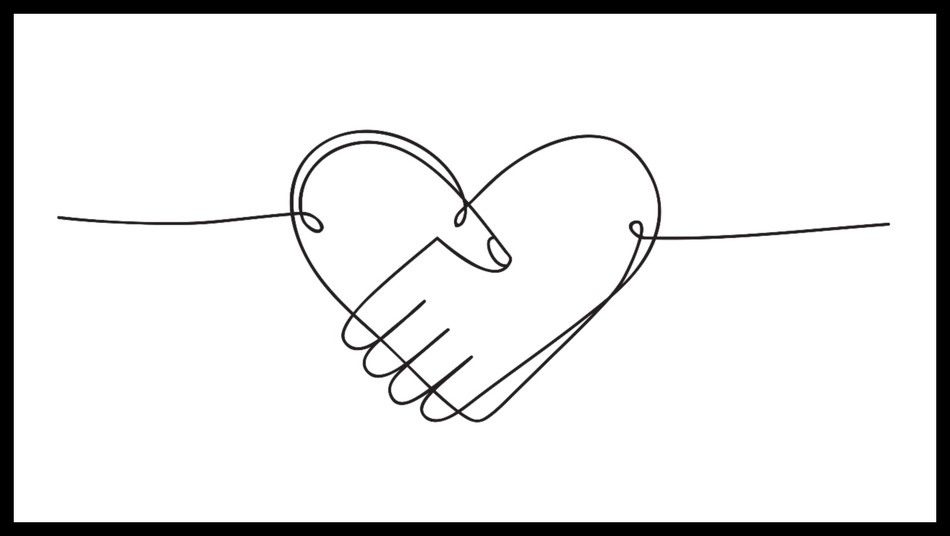
What We Can Learn From the Good Samaritan Story
Moral Lessons

Published July 13, 2023
The term “Good Samaritan” today refers to someone who helps others in a random act of kindness . It originated from the Parable of the Good Samaritan, a story that is very familiar to Christians.
In the story, a Jew was robbed and left to die by his assailants. Two highly respected men passed by him but decided to walk away. Then a Samaritan came along. Unlike the other two, he tended to the man’s wounds and brought him to an inn. Then he gave money to the innkeeper saying, “Look after him, and when I return, I will reimburse you for any expense you may have.”
But what has a thousand-year-old story to do with us? Like any parable, Jesus used this story to teach us lessons about life and about God. But before we can discuss the lessons we can learn from the good Samaritan story, we need to understand the parable first.
Understanding the Parable of the Good Samaritan
If you’re unfamiliar with parables, they are stories that Jesus told his disciples to illustrate a moral or spiritual lesson. The story of the good Samaritan is just one of the many parables in the Bible.
This parable can be found in Luke 10:25-37 , and it goes like this:
On one occasion, an expert in the law stood up to test Jesus. “Teacher,” he asked, “what must I do to inherit eternal life?”
“What is written in the Law?” he replied. “How do you read it?”
He answered, “‘Love the Lord your God with all your heart and with all your soul and with all your strength and with all your mind; and, ‘Love your neighbor as yourself.”
“You have answered correctly,” Jesus replied. “Do this and you will live.”
But he wanted to justify himself, so he asked Jesus, “And who is my neighbor?”
In reply, Jesus said: “A man was going down from Jerusalem to Jericho when he was attacked by robbers. They stripped him of his clothes, beat him, and went away, leaving him half dead. A priest happened to be going down the same road, and when he saw the man, he passed by on the other side. So too, a Levite, when he came to the place and saw him, passed by on the other side. But a Samaritan, as he traveled, came where the man was; and when he saw him, he took pity on him. He went to him and bandaged his wounds, pouring on oil and wine. Then he put the man on his own donkey, brought him to an inn, and took care of him. The next day he took out two denarii and gave them to the innkeeper. ‘Look after him,’ he said, ‘and when I return, I will reimburse you for any extra expense you may have.’
“Which of these three do you think was a neighbor to the man who fell into the hands of robbers?”
The expert in the law replied, “The one who had mercy on him.”
Jesus told him, “Go and do likewise.” What makes this story very compelling is that Jews and Samaritans are historical enemies. Jews don’t talk to Samaritans as they consider them renegades and “half-breeds.” And this enmity is returned by the Samaritans.
In Jesus’ time, this xenophobia goes more than just the cold shoulder treatment. The two tribes hated each other so much that the Jews would rather cross the Jordan River than go through Samaria. In Biblical times, the Jordan River is one of the most dangerous rivers in that part of the world. Yet, the Jews would rather risk their lives than go through the land of their sworn enemies. By using a Samaritan in his story, Jesus is not only teaching his followers about the kind of love that transcends racial divisions. Remember that many of Jesus’ followers are Jews. He also wants them to see their enemies in a new light and love them as they would themselves.

Lessons from the Good Samaritan Story
Here are some of the most valuable lessons we can learn from the Good Samaritan story:
1. Help When Someone Needs Help
Having the intent to help is good, but acting on that intent is much better. The Samaritan’s intent didn’t save the wounded man from death. It’s his actions that ultimately saved the man’s life. He didn’t walk away, just like the two men before him. He decided to do something. In our time, that half-dead man’s photos would end up on social media before he even got to the hospital. Everybody would take pictures, but very few would actually dare to help. We’ll feel sorry for that person but not enough to get involved. Now, are we the good Samaritan, or are we the men who walked away?
2. Race Should Never Matter
Xenophobia and racial prejudice have always been a great divider among nations. Since ancient times to the present, we tend to distrust others who don’t look like us or sound like us. But the Samaritan didn’t care about race. He showed us that racism has no place in charity. And that we should help others regardless of where they came from or what they believe in. After all, we are all created equal: no one race is superior or inferior to the other. And at the end of the day, we all belong to the same race: humanity .
3. Be Kind Even To Your Haters
Have you ever wished ill of your enemy? Admit it or not, at some point in our lives, we’ve all done that. Sometimes, the temptation to take revenge on our enemies is just so strong and difficult to resist.
In the story, the injured traveler most probably hated the Samaritan. And he knew that the dying man may still hate him after he recovered. Yet, he helped him.
The civil rights activist Martin Luther King Jr. famously said :
“On the parable of the Good Samaritan: “I imagine that the first question the priest and Levite asked was: ‘If I stop to help this man, what will happen to me?’ But by the very nature of his concern, the good Samaritan reversed the question: ‘If I do not stop to help this man, what will happen to him?”
Consider putting yourself in the Samaritan’s shoes. What would you have thought of first? The fact that he’s from a different race or that he is dying and needs help?
4. Help Without Expecting Something in Return
Be honest with yourself, would you help someone if you knew they would never be able to return the favor? If you answered yes, then good for you. But most of us wouldn’t.
Most of us help because we are expecting a reward of some sort. We return a lost wallet and expect the owner to reward us. We help our friends because we assume that they’ll also help us when we are in need.
But, in doing so, we create a world where we only help “our kind” and those who are “one of us.” There is not much incentive to help strangers if we know we can get nothing from them.
The Samaritan knew that the wounded man might never help him in return. Yet, he pressed on because he knew it was the right thing to do.
Following in the Good Samaritan’s Footsteps
Being a Good Samaritan in its modern-day context is hard. Most of the time, we are so wrapped up in our own lives that we forget about our less fortunate brethren. But you can still fix that.
Start with little acts of kindness and practice more empathy. Think less about what others can do for you and more about what you can do for them. That, in itself, is already being a good Samaritan.
Donate To The Poor & Homeless Of South Florida
Our Father’s House Soup Kitchen has fed the poor and homeless in South Florida over 900,000 hot meals since 1993. Our tax deductible non profit organization also accepts and distributes donations such as clothing, toiletries, shoes, bicycles, and more. You can donate to help the poor and homeless through our website.

Reviewed For Factual Accuracy
Our team meticulously fact-checks all website content before publishing. Discover more about our website’s editorial standard here and the dedication we uphold.

About The Author
Judy Ponio is a professional writer and devoted Christian. She has a passion for writing about topics related to morality and helping the poor and homeless. She is the lead author for the Our Father’s House Soup Kitchen blog.
Correct Digital, Inc is paid by private donors to provide website digital marketing services to this non-profit organization.
Related Posts

Helping the Poor , Moral Lessons

Famous Quotes on Giving: Inspiring Acts of Kindness and Charity

The Role of Faith in Volunteering

How to Teach Children the Importance of Charity

501(c)(3) not for profit based in Pompano Beach, Florida USA
Helpful Links
Blog ✦ About ✦ Gallery ✦ Contact

© OFHSoupKitchen.org 2024
View Our Privacy Policy
Web Development by Correct Digital
Donate To Help The Poor & Homeless Of South Florida
Our Father’s House Soup Kitchen has served over 900,000 hot meals to those in need since 1989. Help us continue our mission to serve God’s precious poor with an online tax-deductible donation.

The Parable of the Good Samaritan’s Deeper Meaning
The parable of the good Samaritan provides an example of risk-taking love. Jesus does not specify that the victim who was attacked and abandoned. He is anyone. He is everyone. Christ wants us to be moved by a love that pays no attention to racial, religious, or socioeconomic categories.

The Parable of the Good Samaritan raises many questions. How do we relate to people who are different from us? What is our responsibility towards the many hurting people in our world? Who is our neighbor?
“Which of these three do you think was a neighbor to the man who fell into the hands of robbers?” The expert in the law replied, “The one who had mercy on him.” Jesus told him, “Go and do likewise” ( Luke 10:36-37 ).
“The Word is living and active, sharper than any two-edged sword” ( Hebrews 4:12 ). Christ often cuts deep into the heart of what we believe; His truth frequently threatens our comfort.
Who Were the Samaritans?
Samaritans appear to have emerged from the intermarriage of Jews and pagans. When “Assyria conquered Israel” in 722 BC, “they took most of its people into captivity” and “resettle[d] the land” with foreigners; “intermarriages also took place.”
This group did not adhere to Jewish law — God’s law — as strictly as the Pharisees did. The Samaritans were influenced by pagan traditions . “They were the despised enemies of the Jews.”
In Luke 10 , Jesus was speaking to a Jewish lawyer, someone well acquainted with the history of Israel and of this long-standing enmity between the two groups. He and the rest of the audience were familiar with the fact that Jews and Samaritans hated each other. They would most certainly have crossed the street to avoid one another.
Jesus’ Simple Message in this Parable
In the Beatitudes, Christ had declared “blessed are the merciful, for they will be shown mercy” ( Matthew 5:7 ). Christ’s message was that if we wish to be reconciled to the Father, we must demonstrate love towards all people, regardless of race, religion, or social position.
Love is active, inconvenient, risky, and might not be reciprocated. What if, in Jesus’ parable of the Good Samaritan , the wounded traveler had died, or was unable to repay the Samaritan?
This parable foreshadows Christ’s sacrifice on the cross and the free gift of grace He offers to repentant sinners. Jesus took a risk: “While we were still sinners, Christ died for us” ( Romans 5:8 ). He paid everything so that those who believed in Him for salvation would be saved while knowing many would reject the gift. God asks that we meet lost people in their painful messes and lead them to the cross, risking rejection but hoping to witness their salvation.
Why a Samaritan?
As with a hymn sung robotically to an age-old tune in the familiar rhythm, singers will often forget the song’s meaning. The lawyer had learned a lot about God, yet he did not have a relationship with Him or mercy for the broken.
Well-trained lawyers ask questions to which they already know the answer, and asking what must I do to inherit eternal life? “reveal[ed] that he had some insight into the matter of salvation.” He was “knowledgeable in Hebrew law” and “a scholar of Jewish literature.” The lawyer knew that he needed to wholly love God and love his neighbor, but the words had not impacted his heart .
Jesus’ parable and the choice of a Samaritan as the hero was like a new arrangement for those ancient words, set to a different tune and tempo. “The Master Teacher,” writes Wayne Jackson, invited the lawyer “to scrutinize his own attitude (if honest enough to do so), and perhaps come to a better understanding of his Creator’s expectation of proper social attitudes.”
Christ appears to be saying that even someone with a distorted understanding of the law could still reflect the heart of the Father more accurately than a law-abiding Jew. “Love your neighbor as yourself:” The words fell lifeless from the lawyer’s mouth, but Christ imbued them with meaning and power by illustrating how to live by them. “Be doers of the word and not hearers only, deceiving yourselves” ( James 1:22 ).
Natural Enemies, Unnatural Love
Christ does not specify that the victim “attacked by robbers” and abandoned “half-dead” was Jewish, Samaritan, or otherwise. He is anyone. He is everyone. Jesus wants us to be moved by exceptional compassion; love that pays no attention to racial, religious, or socioeconomic categories.
The original Greek says that the Samaritan did more than “[take] care of” this man but offered “care and devotion” such as the kind “shown by parents and nurses to children.” The man’s emotional and financial investment in a stranger’s care, his generosity, was “staggering.” What the Samaritan paid to the innkeeper was “the equivalent of over $1500” or enough for “slightly more than three weeks lodging.” His love was extravagant.
He did not preach compassion to the innkeeper or return for payment from the beaten man. The Samaritan took responsibility financially and personally and lived out a belief: That your neighbor is the person who needs saving.
The word “ splagma ” used in the original Greek means “pity from your deepest soul.” The Samaritan’s heart was broken, reflecting a heart for God and the heart we receive from God for others when we embrace salvation through the mercy of Christ.
God invites us to see beyond the exterior of lifestyle, color, and even religious affiliation to the Imago Dei in everyone. He reminds us in Luke 10 that we were once the same as that broken, bleeding man. “Once you were alienated from God” and were even His “enemy” but you have been “reconciled [...] by Christ’s physical body through death” and are now “without blemish and free from accusation” ( Colossians 1:21-22 ).
Our sin nailed Christ to the cross, and the Father has every right to despise us, yet He has made us “heirs with Christ” ( Romans 8:17 ). This extravagant love should inspire us to love others extravagantly. His “ radical grace ” gives us a new identity that we are eager to share.
In this new identity, the Father also gives us dignity. Like the man who had been beaten and robbed in Jesus’ parable, we were once naked in need of covering. The Father clothed us in the blood of His Son. God rescued us from death for eternity, but He also restored us to communion with others and with Him today. He bestows value and dignity onto all who love Him, including those who are rejected by the world.
Kingdom Roles
Royalty, ideally, serves their kingdom first. God established expectations for Israel’s kings. “The king must ‘not consider himself better than his brothers and turn from the law to the right or to the left’” ( Deuteronomy 17:20 ).
Colin Smith explains , “The most powerful man in the land must be the first to model commitment to the Law of God. Others were looking to him, and they would follow his example.” Expectations of leaders in the new church were the same. 1 Peter 5:3 says “that pastors and elders are to be ‘examples to the flock’ of God.”
All Christians inherit the kingdom of God. We are “heirs of God and co-heirs with Christ, if indeed we share in his sufferings in order that we may also share in his glory” ( Romans 8:17 ). Therefore, those royal expectations apply to all believers. We do not merely inherit the kingdom; we inherit responsibilities.
The Good Samaritan represents Jesus, who paid every cost associated with healing the broken man. Like innkeepers, we are charged with the duty to care for certain individuals who come into our lives, broken by sin; alienated from God.
The Good Samaritan gave instructions to the innkeeper, and we have no idea what followed: how long it took for the man to recover; whether there were more bills to pay; if the man ever did recover. The story lacks a neat ending and many questions remain unanswered. Why would the innkeeper simply trust the Samaritan?
And who are we in this scenario? We were once the broken man. Our hearts and actions should now emulate those of the Samaritan. But perhaps we are really the innkeeper following the Samaritan’s (Christ’s) instructions because we know by His example that we can trust Him.
We want to serve Him by serving others. “Truly I tell you, whatever you did for one of the least of these brothers and sisters of mine, you did for me” ( Matthew 25:40 ). Our means are limited, but Christ paid the price.
We are weak, but His Spirit empowers and equips us to do His work. “Now may the God of peace who brought again from the dead our Lord Jesus, the great shepherd of the sheep, by the blood of the eternal covenant , equip you with everything good that you may do his will, working in us” ( Hebrews 13:20-21 ).
Messy for Christ
The Samaritan provides an example of risk-taking love, and those who love Christ are inspired to follow that example. Picture the Samaritan treating this stranger’s wounds, pouring out expensive oil and the wine that would have quenched his thirst.
Imagine him tearing clean, costly cloth, perhaps from the very garments he wore, to bind the bleeding man. Then he hoists this dirty, bloodied stranger onto his donkey, his skin and clothes stained in gore and grime. Filled with splagma, he ignores the position of the sun and cares nothing for the inconvenience of this interruption.
Christ depicts the expectation that, as disciples, we will be “prepared in season and out of season” ( 2 Timothy 4:2 ) to lead people out of their sin towards safety, healing, and forgiveness by His power. “As you have sent me into the world, so I have sent them into the world.” ( John 17:18 ) “Them” is now “us.”
Photo Credit: ©iStock/Getty Images Plus/prezent

5 Ways You Can Support Those Who Are Grieving This Thanksgiving

10 Psalms of Thanksgiving and How They Apply to Us Today

A Lifelong Journey Anchored in Faith
The Best Birthday Prayers to Celebrate Friends and Family
Morning Prayers to Start Your Day with God
What are the 10 Commandments? List, Origin, and Bible Meaning
7 Signs We Are in the End Times
25 Bible Verses About Grief for Finding Comfort in Sorrow and Loss
We may not always understand what that care looks like or why certain things happen, but we can be confident that God will work all things for our good.
Bible Baseball
Play now...
Saintly Millionaire
Bible Jeopardy
Bible Trivia By Category
Bible Trivia Challenge

IMAGES
VIDEO